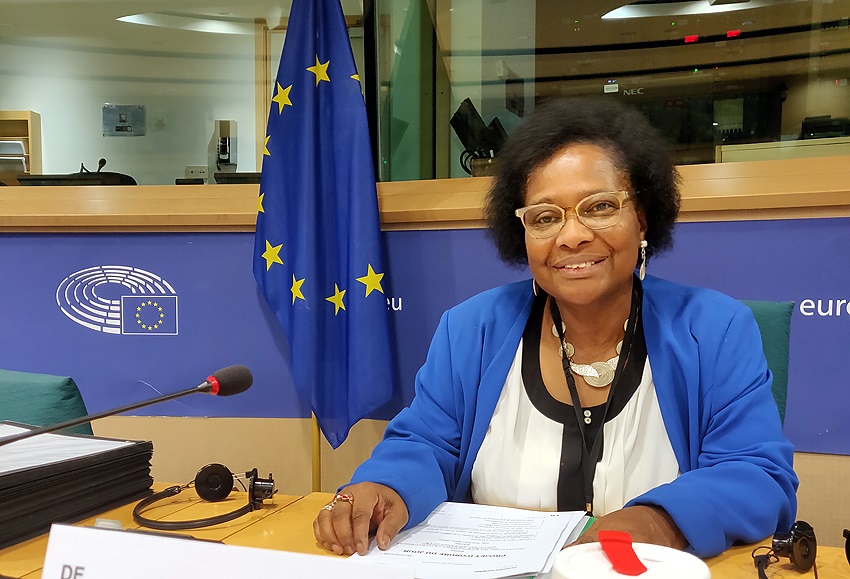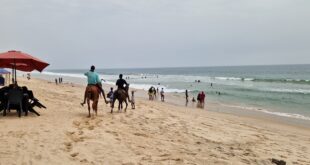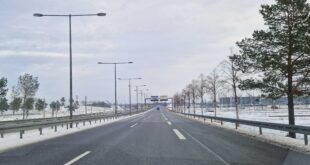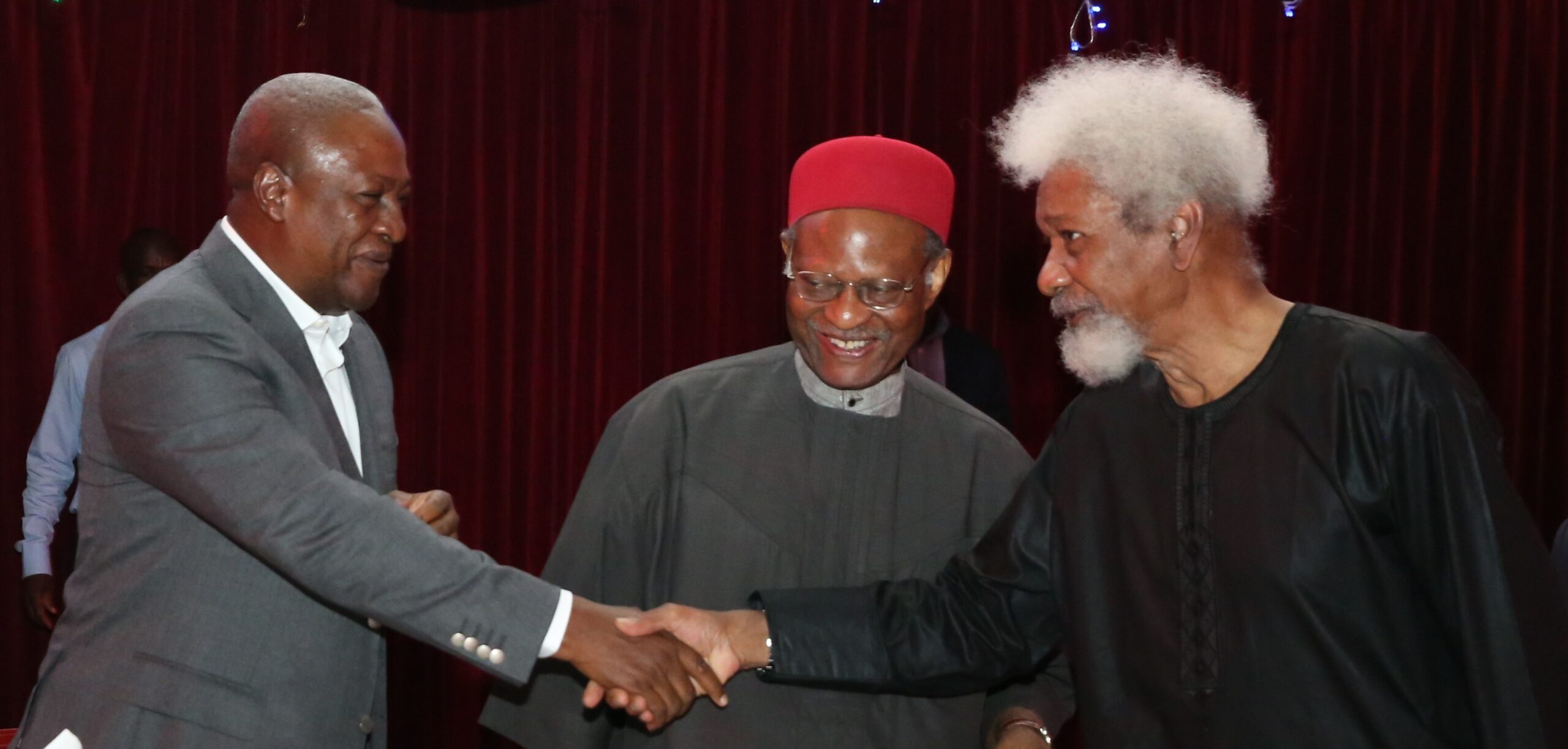Since 1988, the Sakharov Prize for Freedom of Thought has been awarded by the European Parliament to individuals or organisations that have worked to defend human rights and freedom of expression. The prize is named after Russian scientist and dissident Andrei Sakharov.
Vanessa Nakate from Uganda is a candidate for the 2023 Sakharov Prize. Dr Pierrette Herzberger-Fofana*, member of the European Parliament, explains why she nominated the African climate activist for the prestigious prize, which goes with a monetary award of €50,000.
By Dr Pierrette Herzberger-Fofana, MEP
Vanessa Nakate is a young ecological activist from Uganda who is committed to the fight against climate change and for human rights. She is the author of a biography entitled “A bigger picture: My Fight to bring an New African Voice to the Climate Crisis”.
At the World Economic Forum in Davos in 2020, Vanessa Nakate, one of the spokespersons for the climate generation, was photographed alongside four activists such as Greta Thunberg and Luisa Neubauer. Vanessa, who was the only Black woman in the photo, discovered that she had been cut out and expressed her indignation on Twitter.
The incident, which led her to writing A bigger picture, has only strengthened her fight for better representation of African countries in the fight against the climate crisis, an aspect that will be at the heart of negotiations at COP26, in Glasgow, Scotland, and this year in Nairobi, where the “African Climate Change Summit” is taking place.
She founded the first chapter of the ecological movement “Fridays For Future” in Uganda and, with other young people in Africa, the “Rise Up Movement”, amplifying the voices of activists fighting against the consequences of climate change.
While all countries are experiencing global warming, the African continent is hit the hardest: droughts, plague of locusts, heat waves and floods threaten the survival, the economy and the livelihoods of millions of Africans. Yet, Africa accounts for only 3% of global CO2 emissions.

Vanessa is putting her commitment to action and to good use. She highlights the consequences that the climate crisis has on many parts of the African continent and especially its vulnerable population. She can be seen as a voice of a continent severely affected by the global climate crisis.
Vanessa draws attention to the consequences of climate change and fights to protect forests and to make schools green: She has encouraged the planting of fruit trees and the promotion of arboriculture to improve the diet of children in schools and also the schooling for children, especially girls.
Africa is the continent where the sun shines almost all year round. Vanessa has developed a project using solar energy and has encouraged schools to cover their roofs with solar panels and the use of solar-powered ovens in school canteens.
On a continent where 75% of the population is under 35, her voice is crucial in drawing attention to the impact of climate change on women and young people. Vanessa’s advocacy highlights all these issues. She is working towards sustainable solutions for development in Africa.
Her nomination sends a clear message that the fight against the global climate crisis is also a fight for human rights. Extreme weather in Africa not only affects women and girls the hardest, who are often the first taken out of school it also threatens democracies by driving young people into the arms of extremists offering simple solutions.
The award of the Sakharov Prize to Vanessa Nakate sends a strong signal to all people in the Global South that their voices are heard and their challenges recognised.
Vanessa’s nomination for the prestigious Sakharov Prize underscores the fundamental connection between climate protection and human rights.
I am convinced that we can count on the support of all MEPs to ensure that Vanesssa Nakate, this young activist, is the winner of the European Parliament’s 2023 Sakharov Prize.
——————–
About Dr Herzberger-Fofana, MEP:
Dr Pierrette Herzberger-Fofana was elected to the European Parliament on 26 May 2019 as a candidate of Bündnis 90/Die Grünen (Alliance 90/The Greens) and has since been campaigning for a democratic, humane Europe as an MEP.
She is First Vice-Chair of the Committee on Development (DEVE) and the Delegation for Relations with the Pan-African Parliament (DPAP), Co-President of the European Parliament’s Anti-Racism and Diversity Intergroup (ARDI) and a member of the delegation to the Cariforum-EU Parliamentary Committee (DCAR), where ‘Cariforum’ stands for the countries of the Caribbean region.
She is also a substitute in the Committee on Foreign Affairs (AFET) and the Committee on Women’s Rights and Gender Equality (FEMM), as well as a substitute in the Delegation to the ACP-EU Joint Parliamentary Assembly (DACP) – ACP standing for African, Caribbean and Pacific countries.
 THE AFRICAN COURIER. Reporting Africa and its Diaspora! The African Courier is an international magazine published in Germany to report on Africa and the Diaspora African experience. The first issue of the bimonthly magazine appeared on the newsstands on 15 February 1998. The African Courier is a communication forum for European-African political, economic and cultural exchanges, and a voice for Africa in Europe.
THE AFRICAN COURIER. Reporting Africa and its Diaspora! The African Courier is an international magazine published in Germany to report on Africa and the Diaspora African experience. The first issue of the bimonthly magazine appeared on the newsstands on 15 February 1998. The African Courier is a communication forum for European-African political, economic and cultural exchanges, and a voice for Africa in Europe.
































